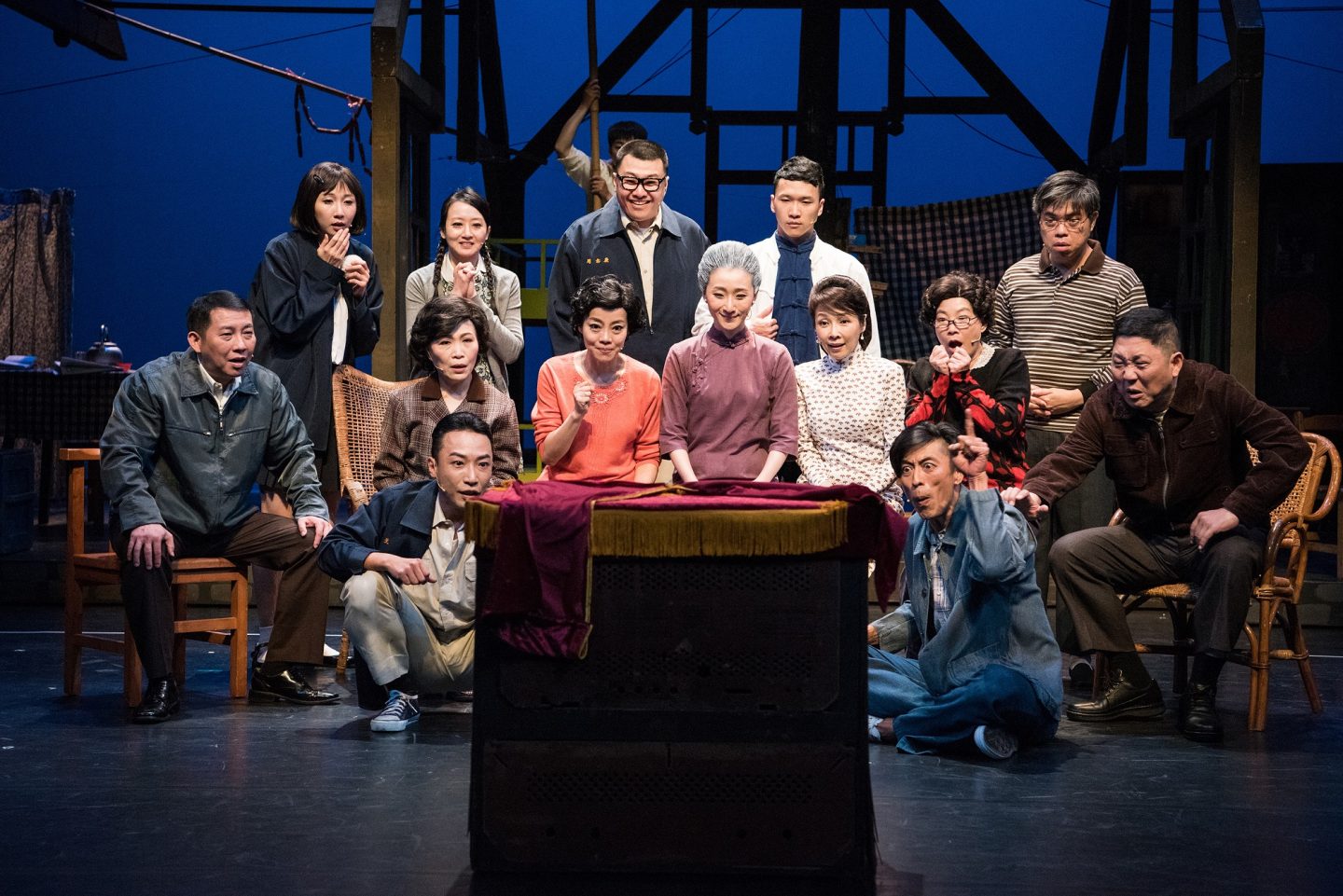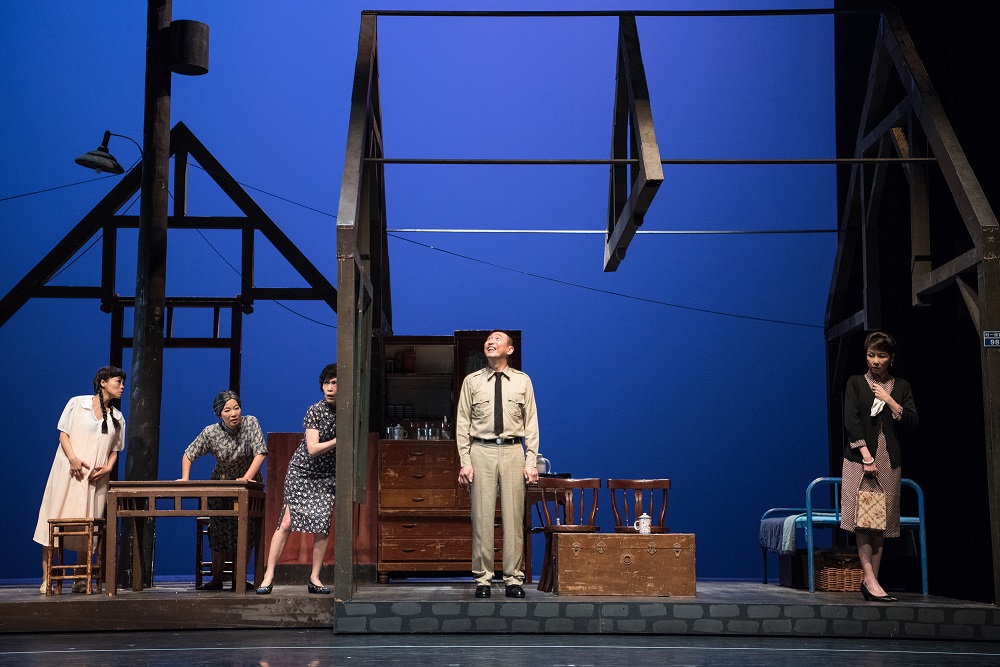
Walter Marsh
Walter is a writer and editor living on Kaurna Country.

In the wake of the Nationalist forces’ retreat from mainland China in 1949, three displaced households seek a new kind of home in Stan Lai’s funny, bittersweet story of community and diaspora spread across half a century and three generations.
The Village begins with a queue, as a mass of families wait in line to be resettled in units as part of a newly-constructed Military Dependents’ Village in Formosa, Taiwan. Largely consisting of low-ranking members of the Kuomintang (Nationalist) army led by Chiang Kai-shek, the 1949 victory of the People’s Liberation Army means they and their families have been plucked from their ancestral homes and placed on the island of Taiwan while plans to retake the mainland are being made.
Lives upended, the neighbouring Zhao, Zhu and Zhou households find themselves living in each other’s pockets, even sharing windows, as they attempt to make the best of this temporary situation. It’s not always easy; differences in rank, class and cultural background are as present as in any community that has been picked up, shuffled and deposited far from home. A running joke about the pitfalls of navigating the many dialects found across China’s vast footprint adds plenty of comic relief, but also drives home the importance of a festival like OzAsia. Asian representation on western screens and stages has improved in recent years, but on a main stage like the Festival Theatre it’s rarer to see such a portrait of the breadth of culture and identities that exist in a region more often depicted with incurious homogeneity. With the Festival Theatre’s subtitles screens often struggling to keep up with the rapid dialogue, as an Anglo-Australian audience member it was somewhat humbling for the foot to be on the other boot.
But, the families persist and eventually find in the village a fledgling, makeshift community of their own. An early scene of this surrogate extended family celebrating a bittersweet first New Year’s Eve away from the mainland is a tender moment that resonates with many diasporic experiences. Throughout, set designer Austin Wang’s simple yet striking framework of the neighbouring houses is a beautiful visualisation of their occupants’ overlapping lives: tellingly, it has no walls.

But, as anyone with a passing knowledge of modern Chinese history will know, the Nationalists do not succeed in seizing back control, and as the temporary dwellings become permanent the ties formed haphazardly by circumstance and arbitrary government housing assignment grow into something deeper. When children arrive in all three households, village life is all they know. For this second generation, Formosa can be stifling, especially as the relative poverty and limited opportunities mix uneasily with the prejudices inherited from their parents’ old lives that continue to bubble to the surface. The village has become home, but like any home, for some the pull to leave is strong.
In the background, we witness a history of the last half-century of Chinese political and military history from the villager’s perspectives; as years pass, failed campaigns, political intrigue and cultural revolutions back home are relayed through rumours swapped under the village tree. But, on the whole, this bigger picture has little bearing on the day-to-day life of the village. While ‘commies’ are reviled and the impact of one community member’s defection sends shockwaves that last years, for those on the ground life simply goes on. Indeed, for all the fears of living under a repressive communist regime, the realities of martial law, the threat of being taken by secret police and life in the cramped communal village come laced with a certain irony.
But while the play’s three-hour running time has its share of yearning and heartbreak, it is more often a comedy, and the cast does a terrific job of capturing each generation at different stages in life, from young newlyweds making the best out of their unexpected new situations to weary elders reflecting on all they’ve lost, but also everything they found in their new home. Fan Jui-Chun is a particular crowd favourite as Mrs Zhu, who we first meet as a young Taiwanese waitress who has fallen pregnant to Kuomintang soldier Zhu. She battles through language barriers to strike up a friendship with her next-door neighbour’s Mrs Zhao’s elderly mother, learning to make the signature savoury buns of the elder’s home. Mrs Zhu, and her buns, become a centrepiece of the play as she ages up, becoming both the village’s culinary lynch pin and eavesdropper-in-chief.
As the years pass and the families fan outwards, The Village is a story about the wider experience of displacement and diaspora, and how community, friendship and perhaps even a sense of belonging can be found even amidst the pressures of transience and uncertainty. Even when tied to a place, in the end home is as much about the people around it.
The Village was performed at the Festival Theatre on Saturday 26 October

Walter is a writer and editor living on Kaurna Country.